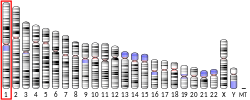Hypogeusia can be defined as the reduced ability to taste things. Due to a lack of stratification, the prevalence of hypogeusia, as well as hyposmia,...
6 KB (748 words) - 07:06, 13 May 2024
loss of the sense of smell. True ageusia is relatively rare compared to hypogeusia – a partial loss of taste – and dysgeusia – a distortion or alteration...
16 KB (1,606 words) - 00:21, 28 October 2024
Sensory problems: Complete loss of taste (ageusia), decreased taste (hypogeusia) and distorted taste (dysgeusia), often involving a metallic taste sensation...
20 KB (1,759 words) - 18:05, 2 November 2024
often associated with ageusia, which is the complete lack of taste, and hypogeusia, which is a decrease in taste sensitivity. An alteration in taste or smell...
43 KB (5,315 words) - 03:05, 15 September 2024
-geusia taste Greek γεῦσις (geûsis) ageusia, dysgeusia, hypergeusia, hypogeusia, parageusia gingiv- of or pertaining to the gums Latin gingīva, gum gingivitis...
119 KB (377 words) - 20:33, 16 October 2024
saliva, and lower-than-normal levels of salivary zinc in individuals with hypogeusia. The protein encoded by this gene is one of several isozymes of carbonic...
8 KB (919 words) - 04:02, 3 February 2024
γεύεσθαι (geúesthai), γεῦσις, γευόμενον ageusia, dysgeusia, hypergeusia, hypogeusia, parageusia glabr- hairless Latin glaber glabella, glabellar, glabrate...
2 KB (1,500 words) - 19:52, 29 October 2024
reference syndrome Parosmia Phantosmia Gustatory Ageusia Hypergeusia Hypogeusia Parageusia Tactile Astereognosis CMT disease Formication Hyperesthesia...
8 KB (899 words) - 22:53, 16 June 2024
overlooked in COVID-19 patients and survivors, unlike ageusia, dysgeusia and hypogeusia. A diagnosis of hyposalivation is based predominantly on the clinical...
37 KB (3,964 words) - 11:47, 21 June 2024
COVID-19. Another June 2020 systematic review reported a 1–8% prevalence of hypogeusia. As of July 2020, the ECDC reported a prevalence rate of ~54% for gustatory...
58 KB (6,693 words) - 21:09, 6 November 2024
hyper-sensitivity to the five primary tastes. ageusia (complete loss of taste) hypogeusia (reduced sense of taste) dysgeusia (distortion in sense of taste) hypergeusia...
96 KB (10,548 words) - 05:53, 27 October 2024
γεύεσθαι (geúesthai), γεῦσις, γευόμενον ageusia, dysgeusia, hypergeusia, hypogeusia, parageusia glabr- hairless Latin glaber glabella, glabellar, glabrate...
21 KB (237 words) - 10:00, 25 June 2023
actually derived from smell. True ageusia is relatively rare compared to hypogeusia (a partial loss of taste) and dysgeusia (a distortion or alteration of...
12 KB (1,583 words) - 18:41, 12 July 2024
dysosmia). Disorders of taste occur in 94% of patients (ageusia 45%, hypogeusia 23%, and dysgeusia 26%). Most patients recover their sense of taste or...
39 KB (5,427 words) - 19:29, 6 November 2024
larynx (voice box). Hyper neurotic diafragma contractions The hiccups Hypogeusia Diminished sensitivity to taste. Hyposmia Diminished sensitivity to smell...
34 KB (3,572 words) - 00:21, 17 August 2024






